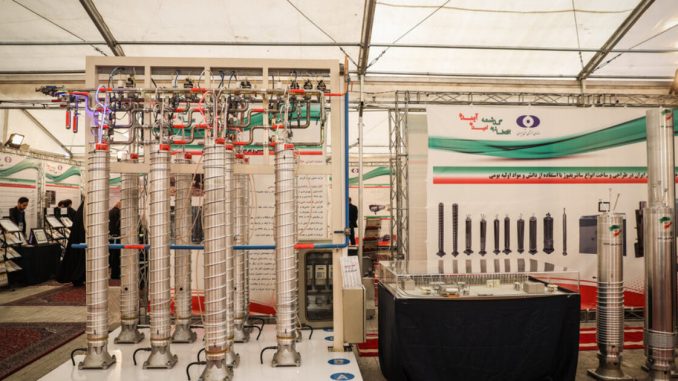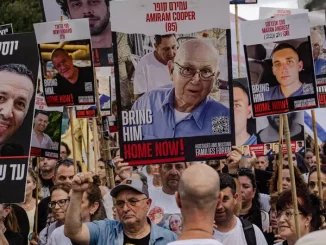
| Published June 4, 2025
A recent Rasmussen Reports survey indicates that 57% of Americans support potential U.S. military action against Iran’s nuclear program, with 28% expressing strong support. This reflects ongoing concerns about Tehran’s advancing uranium enrichment capabilities following the U.S. withdrawal from the 2015 nuclear deal, the Joint Comprehensive Plan of Action (JCPOA).
Iran’s nuclear program has steadily expanded beyond previous limits, raising fears about potential weaponization. In response, the U.S. and its allies have employed sanctions, cyber operations, and diplomatic efforts to curtail Iran’s nuclear ambitions. However, these measures have had limited success in halting Iran’s progress.
Public opinion on the issue is mixed. While a majority favors military action, historical data such as a 2019 Gallup poll show that many Americans prefer nonmilitary approaches, though a significant portion would support military options if peaceful efforts fail.
Retired Army Lt. Col. Darin Gaub, a combat veteran, emphasizes caution in approaching military intervention. He advocates for a comprehensive strategy that prioritizes diplomatic and economic tools alongside military preparedness. Gaub also highlights the importance of supporting the Iranian people and considering the roles of Russia and China, which back Iran politically and economically.
The strategic landscape involves multiple actors. Israel has conducted covert operations targeting Iran’s nuclear infrastructure, while Tehran leverages alliances with Russia and China to resist Western pressures.
This evolving public sentiment and expert caution underscore the complexity of addressing Iran’s nuclear program. Policymakers must balance the risks and benefits of military action against diplomatic efforts and consider broader geopolitical dynamics affecting Middle East stability and global non-proliferation goals.
Concerning Iran’s pursuit of nuclear weapons.
Because it’s the most well-funded department within the U.S. government, we almost always default to using the military rather than other elements of national power. The goal should be to use everything at our disposal that does not… pic.twitter.com/c8C1iQx75D
— Darin L. Gaub (Callsign – Defiant) (@DLGaub) June 3, 2025
Here are the key implications related to the U.S. public’s growing support for potential military action against Iran’s nuclear program, stated without judgment:
1. Increased Pressure on U.S. Policymakers
Growing public support for military options can influence political leaders to adopt a more hawkish stance, potentially narrowing the range of diplomatic solutions they consider viable.
2. Impact on Diplomatic Efforts
Stronger backing for military action may complicate ongoing or future negotiations with Iran, as Tehran might perceive reduced incentives to engage sincerely if it expects military confrontation.
3. Regional Security Dynamics
Any U.S. military action or credible threat thereof could heighten tensions in the Middle East, potentially leading to retaliatory actions by Iran or its proxy groups against U.S. interests and allies.
4. Global Geopolitical Considerations
Countries like Russia and China, which maintain ties with Iran, might respond diplomatically or strategically to counterbalance U.S. moves, affecting broader international relations.
5. Military and Economic Costs
An escalation toward military confrontation would require significant deployment of resources and could have long-term economic and human costs.
Overall Takeaway:
While a majority of Americans now support the possibility of military action against Iran’s nuclear program, there remains a strong call from experts for cautious, multifaceted strategies that prioritize diplomacy and economic pressure. The situation is complex, involving regional and global players, and requires balancing the desire to prevent nuclear proliferation with the risks of military escalation and broader geopolitical consequences.
SOURCE: THE GATEWAY PUNDIT – Many Favor U.S. Military Action Against the Iranian Nuclear Threat, But Not so Fast, Says Combat Veteran





Be the first to comment